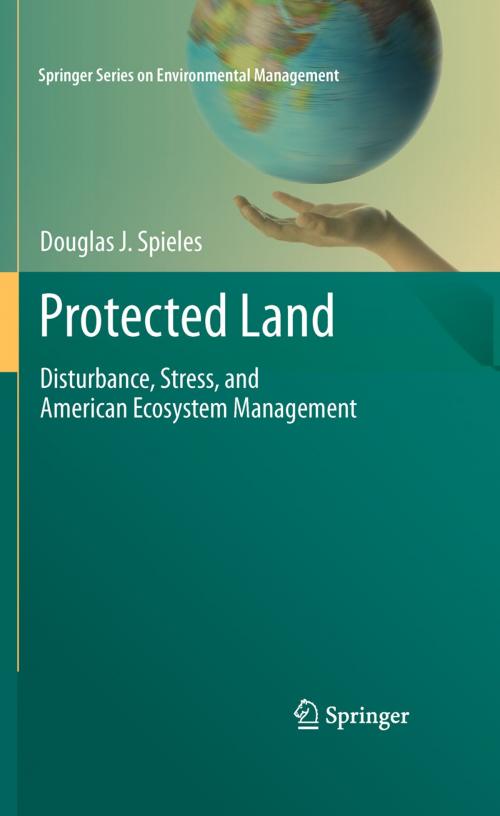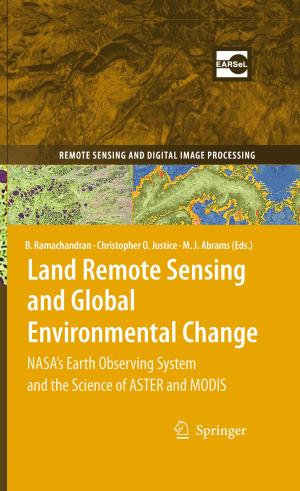Protected Land
Disturbance, Stress, and American Ecosystem Management
Nonfiction, Science & Nature, Technology, Environmental, Nature, Environment, Environmental Conservation & Protection| Author: | Douglas J. Spieles | ISBN: | 9781441968135 |
| Publisher: | Springer New York | Publication: | September 2, 2010 |
| Imprint: | Springer | Language: | English |
| Author: | Douglas J. Spieles |
| ISBN: | 9781441968135 |
| Publisher: | Springer New York |
| Publication: | September 2, 2010 |
| Imprint: | Springer |
| Language: | English |
By many measures, Earth’s ecosystems are stressed. Actually, it may be more accurate to say that Earth’s remaining ecosystems are stressed. The fact is that most of the planet’s biomes support only a fraction of the biological communities they once did, primarily because humans have converted large areas of land to alternate uses. More than two-thirds of the global temperate forests, half of the grasslands, even a third of desert ecosystems have been conscripted for human uses like agriculture, construction, harvest and extraction. Cultivation alone covers a quarter of the habitable terrestrial surface. Aquatic ecosystems have not fared any better. An estimated half of the world’s wetlands are gone, particularly those of coastal regions or on arable land. About a fifth of the coral reefs and a third of the m- grove swamps of a century ago have been lost in just the last few decades. The volume of water impounded by dams quadrupled over the same period – it now far exceeds the volume of water in unimpeded rivers (Millennium Ecosystem Assessment 2005; Mitsch and Gosselink 2007). So any assessment of ecosystem status is necessarily an analysis of fragments and remnants, and many of these are degraded by one or more anthropogenic stressors.
By many measures, Earth’s ecosystems are stressed. Actually, it may be more accurate to say that Earth’s remaining ecosystems are stressed. The fact is that most of the planet’s biomes support only a fraction of the biological communities they once did, primarily because humans have converted large areas of land to alternate uses. More than two-thirds of the global temperate forests, half of the grasslands, even a third of desert ecosystems have been conscripted for human uses like agriculture, construction, harvest and extraction. Cultivation alone covers a quarter of the habitable terrestrial surface. Aquatic ecosystems have not fared any better. An estimated half of the world’s wetlands are gone, particularly those of coastal regions or on arable land. About a fifth of the coral reefs and a third of the m- grove swamps of a century ago have been lost in just the last few decades. The volume of water impounded by dams quadrupled over the same period – it now far exceeds the volume of water in unimpeded rivers (Millennium Ecosystem Assessment 2005; Mitsch and Gosselink 2007). So any assessment of ecosystem status is necessarily an analysis of fragments and remnants, and many of these are degraded by one or more anthropogenic stressors.















